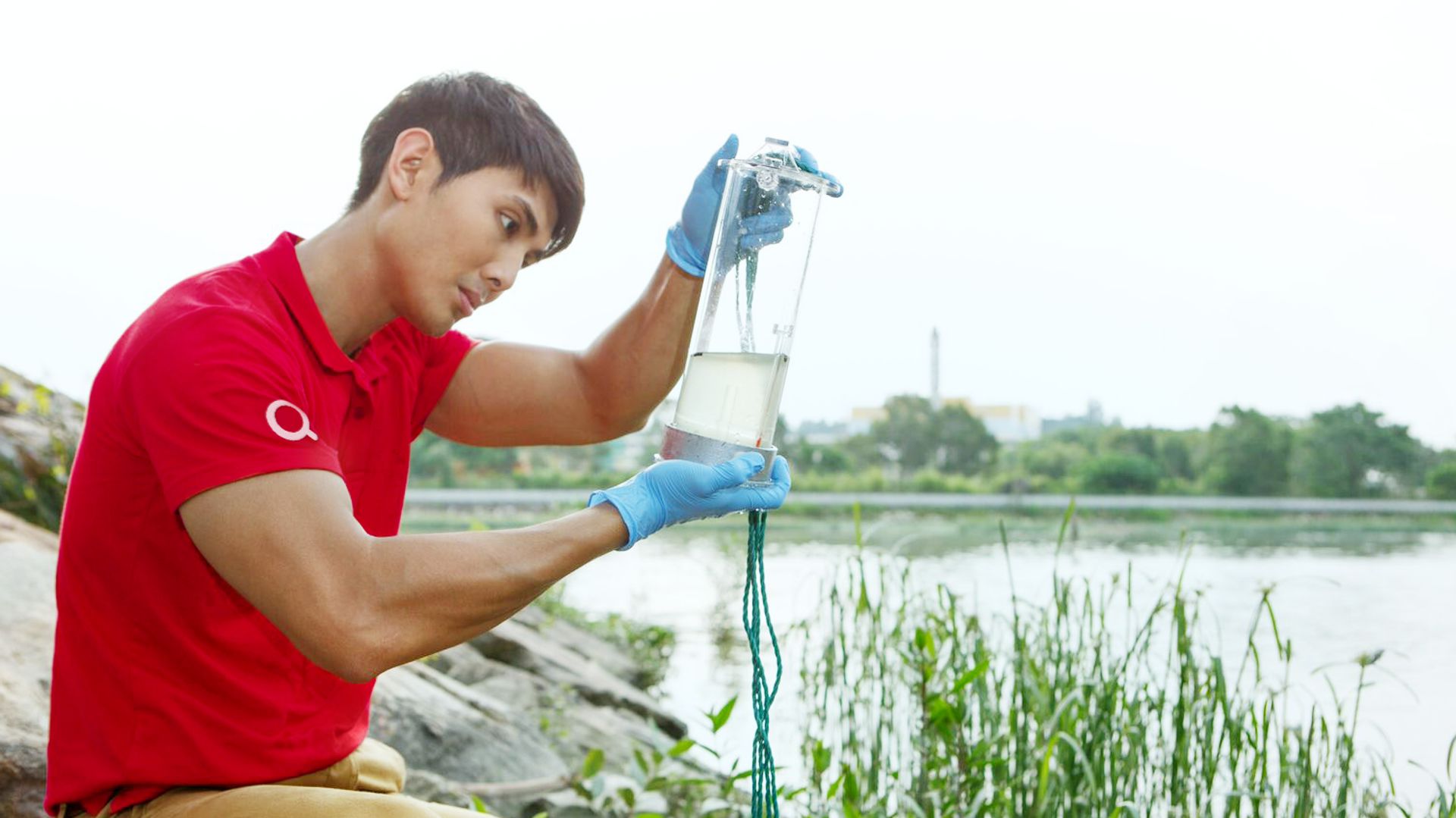Environmental Audits for Supply Chain Sustainability
Ensure your suppliers comply with environmental standards to protect your reputation and lower costs through sustainable practices.
QIMA’s environmental audit services are an effective way for businesses to assess and verify suppliers’ adherence to sustainability standards.
By conducting an environmental audit, you can pinpoint areas for improvement within your supply network and drive tangible, impactful change.
On this page, you’ll find:
Why Conduct an Environmental Audit?
Our Audit Protocol
Enhance Your Audit with Higg FEM and amfori BEPI
What You Will Receive Following an Audit
QIMA Benefits
Need more information?
By contacting QIMA you agree to our privacy policy and terms and conditions.
Why Conduct an Environmental Audit?
Companies are driven to conduct environmental audits by a combination of regulatory pressure, risk management, stakeholder expectations, and strategic benefits.
Environmental audits help you:
Identify environmental risks in your supply chain, particularly in vulnerable sourcing regions
Comply with increasing sustainability regulations
Identify areas of inefficiency and waste
Demonstrate responsibility to stakeholders
Build your reputation with consumers as a responsible brand
Contribute to a more sustainable future

Our Audit Protocol
QIMA offers an environmental auditing service based on GSCP level 1 and the ISO 14001 family of standards for evaluating performance in environmental management.
Our environmental audit assesses factory compliance with local laws and regulations for environmental protection, as well as certain best practices derived from the ISO 14000 family of standards:
Environmental management systems
Energy use, transport, and greenhouse gas emissions
Water use
Wastewater effluent
Emissions to air
Pollution and hazardous substances prevention
Waste management
Major incident prevention and management
Contaminated land/soil and groundwater pollution prevention
Land use and biodiversity
Environmental nuisance control (odor, noise, dust, and light)
Enhance Your Audit with Higg FEM and amfori BEPI
In addition to our standard protocols, we offer audits aligned with the Higg Facility Environmental Module (Higg FEM) and the amfori Business Environmental Performance Initiative (BEPI).
Higg FEM: As an approved verifying body, QIMA provides benchmarks for sustainability, particularly in the apparel and footwear industries.
amfori BEPI: QIMA is accredited to carry out BEPI audits designed to improve environmental performance across diverse supply chains, offering insights and best practices applicable to all industries.
What You Will Receive Following an Audit
At the end of every environmental audit, we provide a corrective action plan (CAP), which is agreed upon with the factory management staff. The CAP outlines remediations the facility must take to improve its environmental performance, with timelines and clear actions prioritized according to their beneficial impact.
Create an account and book an Environmental Audit
QIMA Benefits
In-depth local knowledge with auditors attuned to the culture, laws and practices of their region.
CSR experts receive regular training on regulations and best practice.
Global coverage across 100 countries in Asia, Africa, Europe, North and South America.
Continuous improvement approach drives long-term change and empowers suppliers to act.
Online program management book audits, make payments, and download detailed reports.
Custom compliance dashboard to assess supplier performance, track progress and visualize your supply network.
Ranked #1 in the industry for customer satisfaction based on independent NPS measurement.
